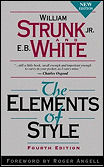Update 2014
Since last chatting with Mary Bradford back in 2012 I'm delighted to announce she has been offered a contract for her fantastic novel
My Husband's Sin with
Tigearr Publishing.
Here is the link to Mary's bio on Tigearr's website.
I would like to welcome Mary Bradford.
Mary has had numerous short stories published in various newspapers, magazines and anthologies in both Ireland and the USA. Mary has just completed her first novel
'My Husband's Sin'.
Daniel Kaye. Where were you born, and where do you call home?
Mary Bradford. I was born in Mt. Alvernia Maternity, Mallow and home is Charleville, Co. Cork.
DK. What is the name of your most recent book or WIP and if you had to sum it up in 30 words or less, what would you say?
MB. I recently finished my first novel ‘My Husband's Sin’. It’s a family saga about the Taylors. It involves the secrets family keep and the fallout when those secrets are revealed. It is with different publishers at present. But my first collection of short stories, titled ‘A Baker’s Dozen’, has been well received and it was self-published through Createspace.
DK. Do you have plans for a new book, and is this book part of a series?
MB. Yes, I am currently working on a book with the working title, ‘Room to Hell’. It’s a stand alone book.
DK. Laptop, desktop or pen for writing?
MB. Normally pen but I am trying to convince myself to type now!!
DK. Who designed the cover of your book?
MB. I took the photo that is on the cover and putting it together, I had help from a writing buddy.
DK. Do you have any advice for other writers?
MB. Turning up to your work-desk and writing each day is vital. If it’s only 100 words you write, its 100 words more than you had yesterday.
DK. Is your book in Print, eBook or both?
MB. My collection of short stories, A Bakers Dozen, is in both formats. It is available from www.amazon.com in paperback form and www.smashwords.com in eBook form.
DK. Have you self-published and if so how would you describe the experience?
MB. Yes, ‘A Bakers Dozen’ was self-published. I loved the experience of seeing it all come together. I used www.smashwords.com and found the site to be very easy to navigate through the whole process. A good friend helped me loads when I found the jargon a bit complicated. So I had terrific help but I can’t name my friend in case he looks for royalties
DK. Where do you prefer to buy your books?
MB. No specific bookshop
DK. What book would you like to read again?
MB. An Evil Cradling by Brian Keenan
DK. What book are you currently reading and in what format?
MB. I am reading ‘Abraham Lincoln, Vampire Slayer’ by Seth Grahame Smith in paperback form.
DK. Your thoughts on receiving book reviews- the good and the bad.
MB. Book reviews are to be taken a pinch of salt I believe. Good ones are to be enjoyed and bad ones are to be ignored as its only one person’s point of view at the end of a writing day.
DK. Do you have a nickname?
MB. Monty, given to be by my mother.
DK. Did you have a favourite toy as a child?
MB. Books (honestly) oh and a walking doll called Caroline who also had a real heartbeat. I still have her.
DK. An early childhood memory?
MB. Falling into a full slurry pit at 6 years of age. It was awful and I am so lucky to be alive actually. Thanks Uncle Bill! He saw me fall in and rescued me.
DK. Any pets that you would like to tell us about.
MB. I grew up surrounded by pets of all descriptions but our own family dog Jake, a cream Labrador, died ten days before Christmas gone. He was 13 years old and adorable.
DK. What’s your poison?
MB. Vodka and white lemonade
DK. Coffee or tea?
MB. Tea
DK. Do you have a favourite food?
MB. Pizza, coleslaw salad and pineapple with a glass of white wine.
DK. Do you like to cook, and if so what?
MB. As a mum, I have no choice.
DK. What do you eat for breakfast?
MB. Tea and Toast
DK. Name 3 things you never leave home without (apart from keys, money and phone).
MB. My late Dads photo, glasses and a scarf.
DK. Sleep in, or get up early?
MB. Depends on what I have on for the next day.
DK. Your favourite gadget-
MB. The washing machine!!! I’m a mother of four!!
DK. Where is one place in the world that you would really love to visit?
MB. Bali.
DK. One of your favourite quotes-
MB. ‘Give a hug, one size fits all’ okay it’s not a great famous quote but it’s so true. I adore hugs.
DK. Where can your readers find you?
My blog:
http://marytbradford-author.blogspot.com/
Twitter:
@marytbrad
A Baker's Dozen: Thirteen Short Stories about Everyday Life available in paperback from amazon A Baker's Dozen And in ebook format from Smashwords Here
I would like to thank Mary Bradford for allowing us the chance to have a chat, and for giving us a glimpse into her writing world. All the best with the new novel Mary.





















